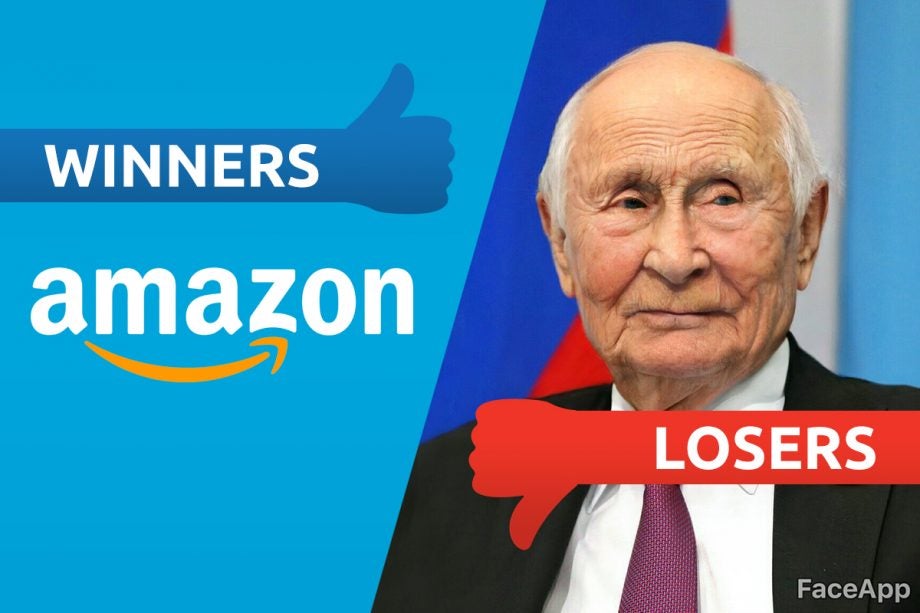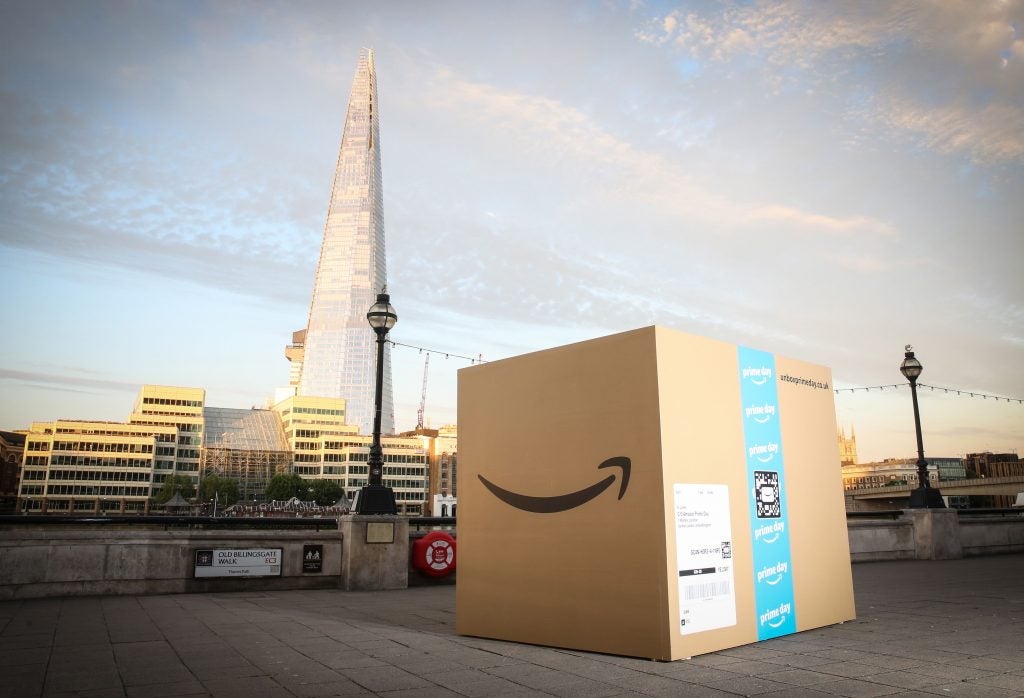Winners and Losers: Amazon shifts record Prime Day numbers while FaceApp gets Putin the picture for ‘spying’

This week in tech news has been dominated by Amazon, or, specifically, Amazon Prime Day 2019 – the shopping giant’s other big online sales extravaganza.
That’s not to say that the rest of the industry went to sleep this week – Vodafone unveiled a string of new 5G locations (right now), TfL is finally bringing 4G connectivity to stretches of the London Underground (next year), and Virgin Media TV customers will be able to enjoy premium Sky content in gorgeous 4K Ultra HD (also next year) – but Amazon’s really brought its A-game to this year’s Prime Day sale.
On the other side of the fence, lots of folks have been having fun with FaceApp this week, a photo app which uses face detection technology to alter your selfies and, amongst other things, digitally age you.
As is often the case with anything viral and meme-y on the internet, it has provoked an outcry as people have accused the app as being little more than a data harvesting campaign – but is there any truth to these accusations, or is it just more baseless hysteria along the lines of ‘Facebook is using Messenger for Android to record your conversations’?
It turns out that Facebook didn’t need to do that at all – just ask Cambridge Analytica…
Without further ado, here’s Trusted Reviews’s latest assessment of the best and worst stories this week:

Amazon Prime Yay – Shop flogs record amount of stuff in biggest ever online bunfight
Knocking hundreds of pounds off of laptops, TVs, phones – not to mention its own line of Alexa-enabled Echo speakers – helped Amazon enjoy its best Prime Day in terms of sales. And if you missed out on a bargain, fret ye not – there’s still some deals to be had.
Frankly, having endured several lacklustre Prime Days in the past – where the best deals on offer were quite often bulk buys of paper towels – it’s not surprising that this year Amazon offered some actually good tech bargains.
Buyers seemed to lap up the deals on offer too, as “Prime members worldwide saved more than one billion dollars throughout Prime Day,” Amazon said in a statement.
“Millions of items shipped in one day or faster using Prime Free One-Day, Prime Free Same-Day, or Prime Now worldwide – making it the fastest Prime Day ever.”
In addition to that, over the two days of Prime Day – the 15th and 16th of July – the company sold more products than it did on last year’s Black Friday and Cyber Monday combined.
Amazon customers from 18 countries opened their wallets this year, twice as many as the first Prime Day five years ago. Whether this means that Bezos & Co. actually brought in a tidier profit than previous years remains to be seen. However, the Amazon founder and CEO mentioned that more than $2 billion of products from independent small and medium-sized businesses was made, up from $1bn from last year’s Prime Day.
Amazon also says that globally, it sold 175 million items this year – up from 100 million from Prime Day 2018, so from that we can assume that Amazon’s done all right.
For the sake of striking workers, we hope that bigger revenues will go some way to improving conditions for warehouse staff – Amazon employees in Shakopee, Minnestota elected to strike for six hours during this year’s Prime Day, with strike organiser William Stolz telling the BBC that working at Amazon’s Fulfilment Center is “physically and metally exhausting.”
Amazon responded, saying that its workers enjoyed better than average wages in the Shakopee area, but it’s unclear if the company will negotiate with its workers, or how the strike action affected sales.

Paranoid FaceAppers Russian to wrong conclusion?
To be clear, we’re not singling out FaceApp because we think that the app is bad (even if it has somewhat clogged our social feeds this week), but because the poor developers appear to have fallen victim to internet hysteria.
The reason? Someone remembered that FaceApp is a Russian company, noticed that the app uploads your photos to cloud servers – something that’s required for the image processing to work – put two and two together, and concluded that FaceApp might actually a nefarious phishing tool cooked up by one V. V. Putin (pictured in the main image, above).
As well as being a tad Russophobic, claims of FaceApp stealing your identity appear to be totally unfounded.
Firstly, FaceApp’s founder Yaroslav Goncharov told TechCrunch that FaceApp uses Google Cloud and AWS – so if anyone’s got access to your aged mugshots, it’s Pichai and Bezos – and if you’ve got cold feet about FaceApp having access to any of your data, you can ask that they delete it.
Even if you wanted them to, Goncharov insists that “we don’t sell or share any user data with any third parties.”
Secondly, nobody has been able to produce any evidence that FaceApp harvests any information from people’s devices, other than basic UI-based information, which is something that the majority of app developers gather for bug reporting and future optimisation purposes.
I am not seeing much fishy in FaceApp
Photos are uploaded to FaceApp’s servers on AWS w/ authorization. Not much info is being sent to FaceApp’s servers other than user metrics (e.g. ui interactions)
I just wish there’s an option for users to delete their photos from the server
— Jane Manchun Wong (@wongmjane) July 17, 2019
Also, FaceApp’s one main flaw – that it was hard to formally request that the app scrubs any data – has now been addressed. You can now directly do this through the app itself, instead of having to contact the developers.
If you ask me, the worst thing FaceApp has done is remind us of our own mortality – cheers, FaceApp, you mordant mudaks.
On that cheery note, we’re done with Winners & Losers for this week. Have a great weekend!


